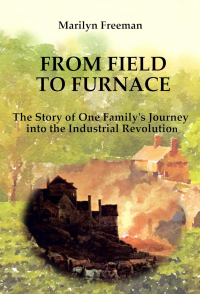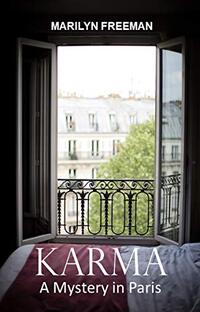Genre:
Crime Fiction Suspense Mystery Historical Fiction- Country: United Kingdom
- Books: 4
- Profession: Author
- Born: 26 June
- Member Since: Feb 2022
- Profile Views: 11,795
- Followers: 324
- VISIT AUTHOR: Website, Join Author's Newsletter, Facebook, Twitter, Instagram, Goodreads, Amazon, Linkedin,
Born in the industrial town of Oldham, England Marilyn initially forged her path as an Industrial Chemist, delving into the intricacies of science. However, her story took a captivating turn when she partnered with her husband in a successful venture manufacturing high end toiletries.
After a fulfilling career in business, Marilyn found a new calling upon retirement. Driven by a deep-seated empathy, she transitioned into the realm of counselling, becoming a person-centred counsellor. Her compassionate nature led her to volunteer in bereavement counselling, offering solace and suppor... t to those navigating the difficult journey of loss.
In the later chapters of her life, Marilyn discovered a passion for storytelling. Four years ago, she embarked on a writing career that has seen the publication of four novels. Three of these novels belong to the captivating genre of family mystery and suspense, highlighting Marilyn's skill in crafting tales that grip the reader's imagination.
The latest addition to Marilyn's literary repertoire is a historical novel, a departure from the mysteries that defined her earlier works. This novel, rich in detail and steeped in the tapestry of history, draws inspiration from Marilyn's own ancestors. She weaves a narrative that explores the profound impact of seemingly inconsequential decisions, echoing through the corridors of time with sometimes tragic consequences.
Marilyn's fascination lies in the intricate dance of characters within her stories. She delves into the complexities of human relationships, unearthing the profound repercussions of choices that resonate through generations. In her writing, she skilfully navigates the twists and turns of familial ties, unravelling the mysteries of the human heart.
As Marilyn Freeman continues to add chapters to her life's story, her passion for storytelling remains undiminished. Through her novels, she invites readers to join her on a journey through time and emotion, where the threads of family, mystery, and suspense are expertly woven into a tapestry that captivates the imagination.
read more
Marilyn Freeman's Books
Stay in the loop on books by Marilyn Freeman. See upcoming and best-selling books by the author here. You'll also find the deals on books by Marilyn Freeman.
** Please note that the information or price displayed here may not be the updated. Make sure to double-check the latest book price before buying books.
** Also, there might be other books by Marilyn Freeman not listed on AllAuthor.
| Book |
|---|
From Field to Furnace: The Story of One Family's Journey into the Industrial Revolutionby Marilyn FreemanPublish: Feb 01, 2024Historical Fiction Literary Fiction |
Marilyn Freeman Interview On 29, Sep 2022
 "Born in Oldham, England, Marilyn Freeman is an author of mystery-suspense novels. She was born in 1946 in a place called Hollinwood. Her first short story was written when she was 14, about being marooned at sea. She decided to study Person Centred Counselling with a view to becoming a Bereavement Counsellor. Her first book, Karma: A Mystery in Paris was born during the Covid lockdown. She has been married twice and has twenty-five grandchildren and five great-grandchildren."
"Born in Oldham, England, Marilyn Freeman is an author of mystery-suspense novels. She was born in 1946 in a place called Hollinwood. Her first short story was written when she was 14, about being marooned at sea. She decided to study Person Centred Counselling with a view to becoming a Bereavement Counsellor. Her first book, Karma: A Mystery in Paris was born during the Covid lockdown. She has been married twice and has twenty-five grandchildren and five great-grandchildren."
I was born in 1946 in a place called Hollinwood. From the name you might imagine this was a pretty place deep in a forest. Not a bit of it. It was a small area on a main throughfare halfway between the smoky northern towns of Manchester and Oldham, in Lancashire, England. My family had a little shop selling sweets and tobacco, just by the side of the very busy road, where cars and buses sped past my bedroom window at all times of the day and night.
I lived with my mother and father and my brother, two years my senior. I was surrounded by aunts and uncles, and grandparents and life was good. My earliest memories are of sitting on the little wooden bench at the back of the shop, observing customers coming in and out, and listening to my mother chatting to them as she weighed out their sweets or handed them their packets of cigarettes. I always felt loved and cared for, even though we didn’t have much money.
Do you remember the first book you ever read?The first book that I remember stimulating my imagination was ‘The Cloud’ by Arthur C Clark, mainly because for some reason I ended up reading it out to my classmates at the end of a busy school year, during that lazy period between the end of exams and the start of the summer holidays. I have to admit, I was something of a success!
The first classic novel I remember reading was Tess of the D’Urbervilles by Thomas Hardy. His writing transported me into another world, far away from the smoke and grime of the Northern mill town, which was the only place I had known, at the time.
As a teenager, what were you obsessed with?As a teenager, I enjoyed the world of pop music as did most of my friends, but I wouldn’t say I was obsessed with any particular artist or type of music, but I did love to dance!
What is the earliest experience you had with books/writing that you remember?The first piece of creative writing I remember producing was a short story I created when I was 14, about being marooned at sea. My English teacher was impressed and gave me an ‘A’. Unfortunately I subsequently switched my attention to science and my writing career had to wait another forty years before I tried again! At the age of fifty I began writing poetry, but it was to be another twenty four years before I wrote my first novel.
What challenges did you face while publishing your book, Karma: A Mystery in Paris?My first book, Karma: A Mystery in Paris was born during Covid lockdown. I had enjoyed a school holiday in Paris when I was sixteen years old. This was my first journey into the world outside the UK, and I fell in love with the place. It was inevitable that my first novel had to be set in that wonderful city. Having for many years, been editing my husband’s books and attempting to get them published by the traditional routes, I was well aware how difficult it was to find an agent, let alone a publisher. At seventy four years old, I figured I didn’t have time to travel down that particular road, and decided to self-publish. I already had quite a bit of knowledge of self-publishing, having dealt with several books for my husband and various private clients. I decided to use Ingram Spark, mainly for their extensive distribution network, so the actual publishing process was fairly straightforward. The problem, as always, is promoting my books, as I only have limited financial resources. So, I just keep on writing and have just completed my fourth novel.
Who inspired the character of Sophie in “Secrets and Lives”?The inspiration for Sophie in ‘Secrets and Lives’ didn’t come from any particular person. I find that most of my characters are amalgams of many people I have come across over the years.
What made you decide to study Person Centred Counselling?I decided to study Person Centred Counselling with a view to becoming a Bereavement Counsellor, but also because people and their motivations have always fascinated me. In fact, my counselling training has proved to be extremely useful as far as my writing is concerned. I love exploring my characters and what ‘makes them tick’, why they make certain decisions, and how they interact with each other. I think this adds depth to my writing.
What is your writing kryptonite? Inversely, what is something that never fails to inspire you?My writing kryptonite would have to be spending too long in front of my computer. More than three hours at a stretch and my creative juices dry up! The solution is always to take a walk through nature. We are fortunate to live within two minutes of the beautiful Embankment along the River Great Ouse in Bedford, and that is where I clear away the clutter from my mind to free up my imagination.
What is your work schedule like when you are writing?I work each day, writing for around three hours at a stretch. The rest of my working day is spent proofreading and editing my husband’s work, or creating books for other people.
Which is the best compliment or fan-mail you have received for your work?The best compliment anyone can pay me is to say ‘I just couldn’t put it down!’
How do you spend “quality time” with yourself?To be honest I view the time I spend writing as my personal quality time. Being creative in any way is rewarding, but when I’m writing I enter another world, one that I can shape and people with interesting characters. Apart from that, quality time is also time spent with family and friends.
How did your friends and family react to your first book?Mainly with amazement, as I published my first book just after my 74th birthday, and no one, not even me, thought that I even had a book in me!
Which one do you prefer: writing a series or a standalone novel? Why?I have written three standalone novels and the first book of a series of four, a family saga. I enjoyed writing the standalone novels best because I get to craft the whole arc of the story from it’s beginning to it’s conclusion. The first book of the series of books about the Bangham family spans the first half of the 18th century, and has many characters, each of which has their own story, all beginning and ending at different points in the narrative, which somehow isn’t quite as satisfying as telling one complete story.
Is there anything you are currently working on that may intrigue the interest of your readers?I am now working on the second book in the Bangham Family Story, which is based on my own ancestors. Like so many families, their story began in the countryside, albeit in their case at the beginning of the Industrial Revolution, working for Abraham Darby in his ironworks. This formed the backdrop to the first novel in the series, Coalbrookdale. From there the family migrated to the area around The Wrekin, in Shropshire, where they worked for the famous ironmaster and philanthropist Richard Reynolds and his son the innovator William. This second novel in the series will span the years from 1750 to 1800 and will tell the story of the family, intertwined with some of the amazing developments that took place during those years in Shropshire.
How long have you been with AllAuthor now and what are some of your thoughts on it?I joined AllAuthor just about ten months ago and have been impressed with the range of marketing resources it has provided. I will certainly use it again to promote my new novel which is awaiting publication at the moment, and of course the second in the Bangham series, which will be entitled The Wrekin.
Marilyn Freeman's Favorite Quotes
View allMarilyn Freeman is a thinker and a doer. These are the quotes by famous personalities the author resonates with.
Ask Marilyn Freeman a Question
Have brimming questions to ask author Marilyn Freeman? Ask whatever you like, but keep it appropriate.
** Please note that unanswered questions will not appear on the page. Refrain from posting promotional messages.






